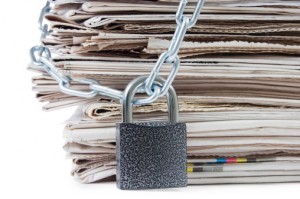Watchdog.org reporter files FOIA request for personal license plate data

MY RECORDS, PLEASE: This Watchdog.org reporter filed a request with the Alexandria Police Department for all records they have on hand related to her personal license plate.
By Kathryn Watson | Watchdog.org, Virginia Bureau
ALEXANDRIA, Va. — After this Watchdog.org reporter learned some local Northern Virginia police departments are randomly scanning — and storing — the date, time and location of license plates, I decided to file a records request for my own data in my own city.
Sometimes, understanding a story means being a part of it. So, following the American Civil Liberties Union of Virginia’s appeal to citizens across the Old Dominion, I made a Freedom of Information Act request for all data related to the instances Alexandria police had captured my license plate. After all, every Virginian has the right under the Government Data Collection and Dissemination Act to access all of his or her personal records the government has on hand.
When I called the police department’s public information office, the pleasant woman who answered the phone said she’d never heard a person make that request before, and directed me to a data department. The woman who answered the phone there told me flat-out that I couldn’t have those records.
Of course, that isn’t ultimately up to her to decide. So, tired of the runaround, I placed my FOIA request and a copy of my driver’s license in the mail, embarrassing Department of Motor Vehicles photo and all.
The Alexandria Police Department has five working days to make some response to the request, and I’ll be sure to let readers know what the police say.
Even though then-Attorney General Ken Cuccinelli said police couldn’t randomly collect and keep such data without probable cause, the Alexandria Police Department stores data for up to four years.
The ACLU of Virginia, concerned about the use of Automated License Plate Readers, is asking local citizens to file records requests for their personal data. With ALPRs fixed on their vehicles or a stationary object, police can randomly scan thousands of license plates at a time, then send that information into a database to be checked against DMV and other records.
It may seem harmless, but that’s only in the hands of someone who is harmless, said Claire Guthrie Gastañaga, executive director of the ACLU of Virginia.
“If they have enough data points about you …. they can make decisions about who you are and what you do,” Gastañaga told Watchdog.org in an interview this week. “That kind of data in the hands of a benign government might be fine, but in the hands of the not so benign” it could be dangerous, she said.
“The constitutional framers I’m sure didn’t have in mind that the police would use this kind of data to create algorithms and let computers crunch the data and find out what they would like to look for,” Gastañaga said.
— Kathryn Watson is an investigative reporter for Watchdog.org, and can be reached at kwatson@watchdog.org, or on Twitter @kathrynw5.







